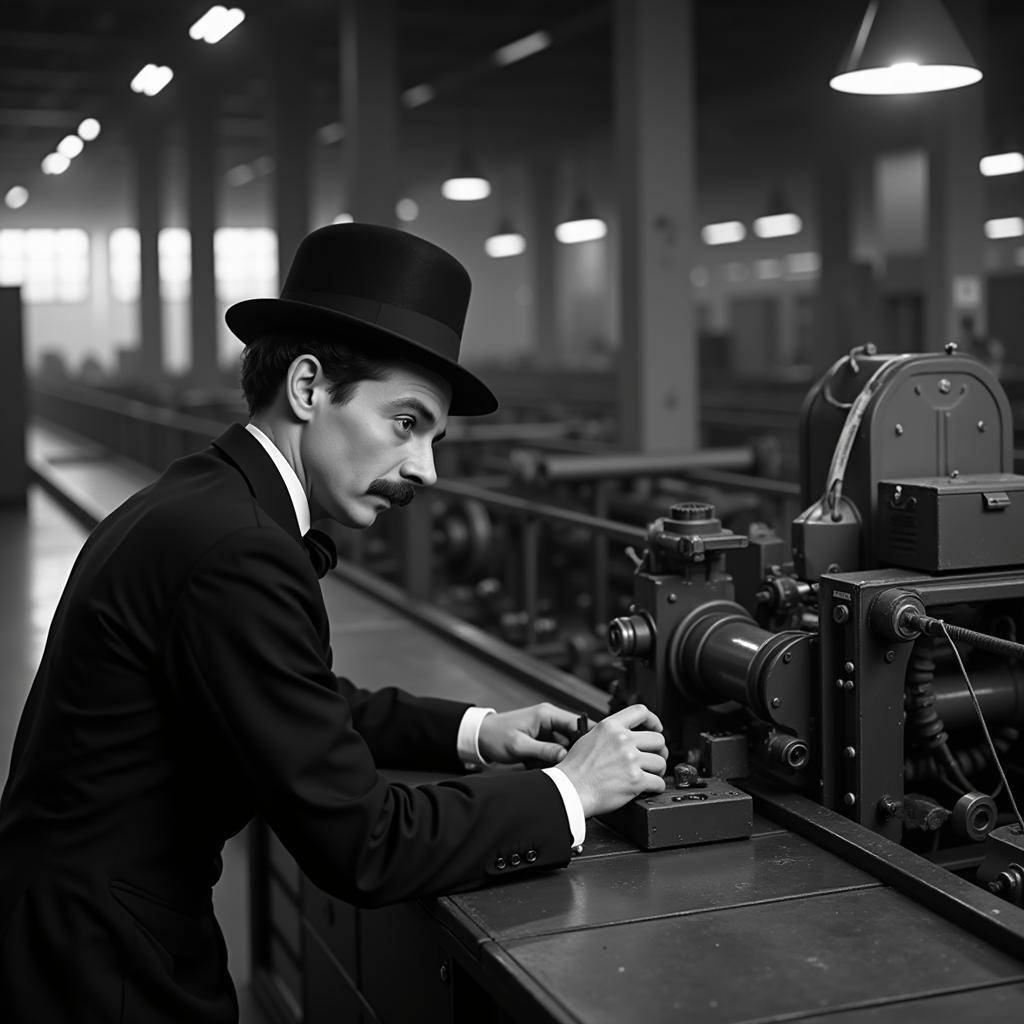Charlie Chaplin’s impact on society is undeniable. From his humble beginnings in the slums of London to becoming a global icon, Chaplin’s influence transcended the silver screen, touching upon social, political, and artistic landscapes. His comedic genius, coupled with a profound sensitivity to the human condition, resonated with audiences worldwide, making him a beloved figure and a powerful voice for the voiceless.
The Little Tramp: A Universal Symbol
Chaplin’s most famous creation, the Little Tramp, became a universal symbol of resilience, hope, and the underdog spirit. With his signature bowler hat, cane, and oversized shoes, the Tramp navigated the trials and tribulations of modern life with a mix of humor and pathos. He represented the common man, struggling against adversity, and his relatable struggles resonated deeply with audiences across cultures and socioeconomic backgrounds. The Tramp’s enduring appeal lies in his ability to find humor in the face of hardship, reminding us of the importance of laughter even in the darkest of times. He became an emblem of hope for the marginalized and a symbol of defiance against injustice.
Chaplin’s Social Commentary: A Mirror to Society
Beyond the laughter, Chaplin’s films often contained subtle yet powerful social commentary. He tackled issues of poverty, inequality, and the dehumanizing effects of industrialization. Films like Modern Times offered a poignant critique of the mechanized world and its impact on the working class. Chaplin’s ability to blend comedy with social criticism allowed him to reach a broad audience, sparking conversations and raising awareness about important social issues. He wasn’t afraid to use his platform to shed light on the struggles of the marginalized and challenge the status quo.
Chaplin’s Influence on Cinema: A Pioneer of Silent Film
Chaplin’s impact on cinema is profound. He was a master of visual storytelling, pushing the boundaries of silent film and elevating it to an art form. His innovative use of physical comedy, combined with his nuanced expressions and gestures, allowed him to convey complex emotions and narratives without uttering a single word. He pioneered new filmmaking techniques and inspired generations of filmmakers to explore the power of visual storytelling. Chaplin’s legacy continues to inspire filmmakers today, demonstrating the enduring power of silent film to transcend language barriers and connect with audiences on a deeply human level.
 Charlie Chaplin in Modern Times: A Factory Scene
Charlie Chaplin in Modern Times: A Factory Scene
Chaplin’s Political Activism: A Voice for Peace
Chaplin’s political activism further solidified his influence on society. He was an outspoken critic of fascism and a staunch advocate for peace. His film The Great Dictator was a bold satire of Adolf Hitler and a powerful condemnation of totalitarian regimes. Despite facing criticism and controversy for his political views, Chaplin remained committed to using his voice to promote peace and social justice. He believed in the power of art to inspire change and used his platform to speak out against injustice and advocate for a better world.
What is Charlie Chaplin’s most lasting contribution to society?
Charlie Chaplin’s most lasting contribution to society is his ability to use humor to address serious social issues while remaining relatable and accessible to a global audience. He made us laugh, he made us think, and he made us care.
How did Charlie Chaplin influence filmmaking?
Chaplin’s innovative use of physical comedy, visual storytelling, and his ability to convey complex emotions without dialogue greatly influenced the development of silent film and continues to inspire filmmakers today.
Conclusion
Charlie Chaplin’s impact on society is immeasurable. His comedic genius, social commentary, cinematic innovations, and political activism have left an indelible mark on the world. The Little Tramp, a symbol of resilience and hope, continues to resonate with audiences today, reminding us of the power of laughter, the importance of empathy, and the enduring pursuit of a more just and peaceful world. Chaplin’s legacy continues to inspire us to find humor in the face of adversity and to use our voices to advocate for positive change.
FAQ
- What was Charlie Chaplin’s real name? Sir Charles Spencer Chaplin.
- When was Charlie Chaplin born? April 16, 1889.
- When did Charlie Chaplin die? December 25, 1977.
- What is Charlie Chaplin’s most famous film? Many consider The Great Dictator his most significant work.
- What was Charlie Chaplin’s character called? The Little Tramp.
- Was Charlie Chaplin knighted? Yes, he was knighted by Queen Elizabeth II in 1975.
- What was Charlie Chaplin’s political affiliation? He was a socialist and pacifist.
For further information and resources on peace and social justice, explore other articles on our website. We also have articles about Mahatma Gandhi and Martin Luther King Jr.
If you need assistance, please contact us at Phone Number: 02043854663, Email: [email protected] or visit us at Zone 34, Bac Giang, 260000, Vietnam. We have a 24/7 customer service team.